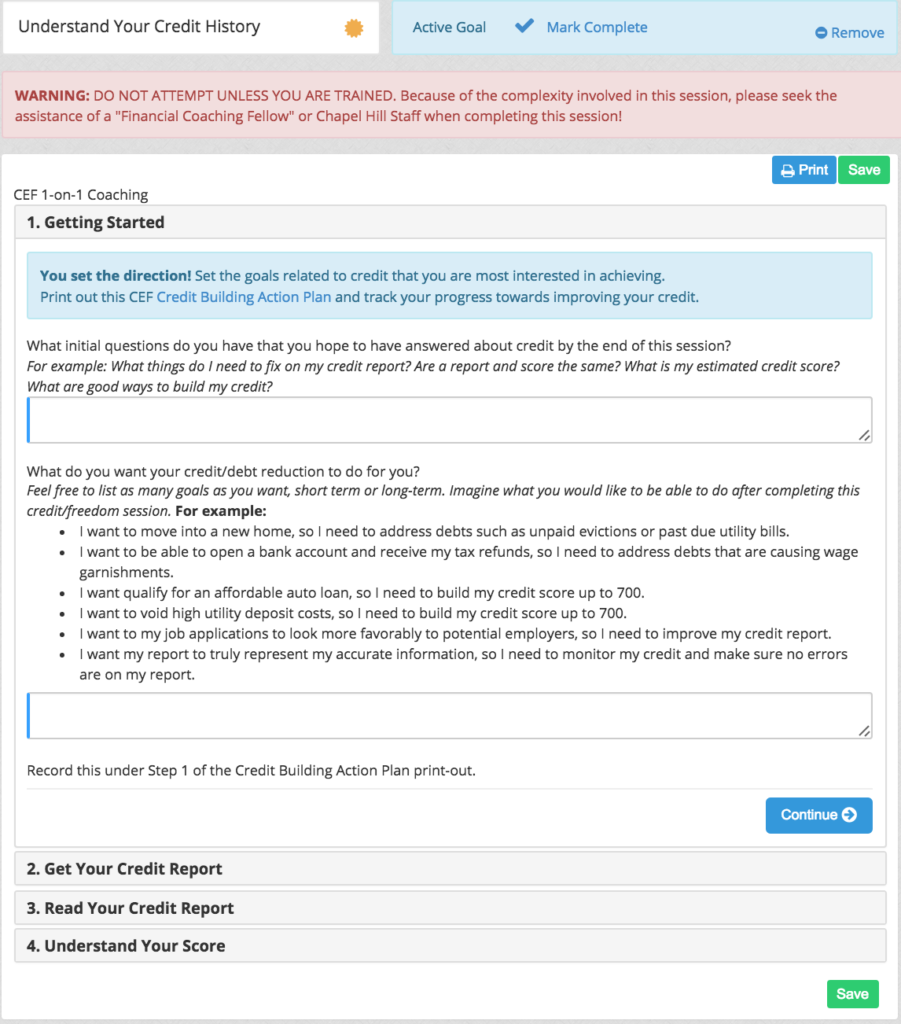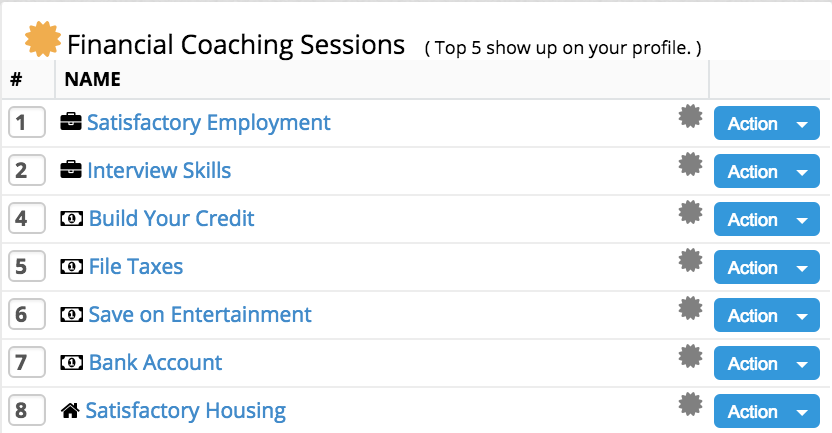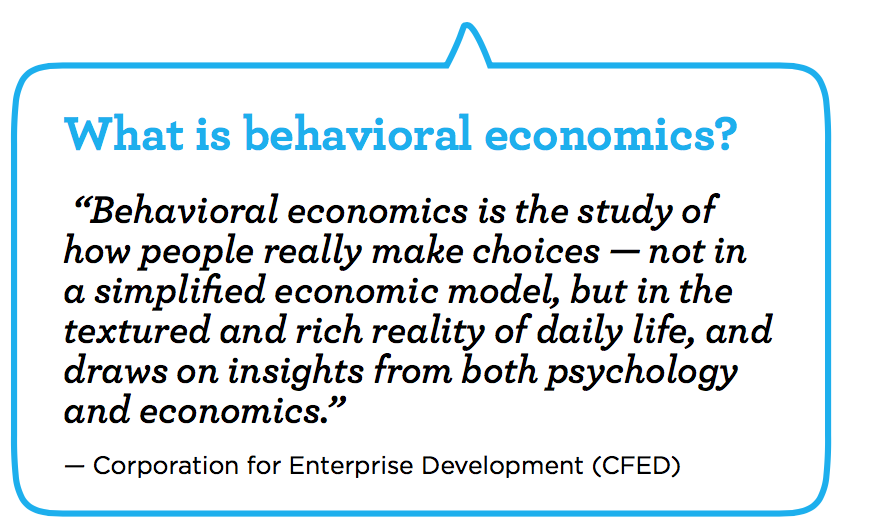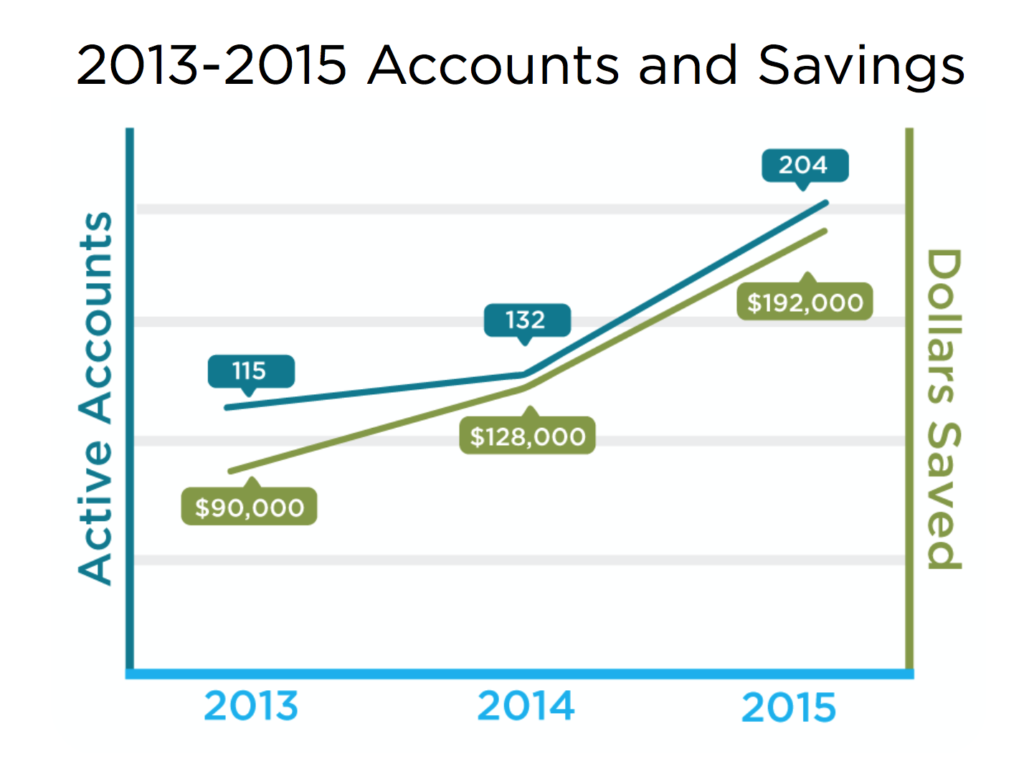

The “Understand Your Credit History” FC Session — Most 1-on-1 sessions start with goal-setting/familiarization input boxes.
By Andrew Franklin:
I’ve heard it said that the exchange of knowledge is among the most intimate of human interactions. In my time at CEF, I’ve seen this exchange happen over and over again. Members share wisdom and experience with Advocates. Advocates share CEF’s resources and body of knowledge with Members as they walk together to achieve Members’ goals. This relationship-based model of learning and sharing is at the core of CEF’s mission and identity.
It was clear, when we recognized the need for a more intentional delivery of existing resources and knowledge through a Financial Coaching program, that we should start with a 1-on-1 approach.
We rolled out the first phase of our 1-on-1 program in January: sessions designed to be interactive and to optimize Member choice. Each session takes about an hour and involves learning financial capability skills and putting them into practice in order to write resumes and cover letters, pull credit reports and dispute errors, and build budgets and savings plans.There is a menu of 18 sessions in the first phase, which creates a great deal of flexibility and choice for Members. Additionally, we’ll be rolling out the second phase of Financial Coaching (FC) sessions this fall/winter, which will add a robust 25-30 sessions to the menu.

8 of the first phase of 18 Financial Coaching sessions!
We look forward to continuing to build and improve this program, and are excited to watch it grow in CEF’s soil. We will continue to listen to Members and Advocates to brainstorm new additions and fixes to old sessions. As always, this is a community effort. We look forward to the relationships that will be built as knowledge is exchanged through the 1-on-1 Financial Coaching program!
Members are encouraged to complete 8 FC session at a time. They can add as many or as few as are relevant to their goals. However, Members who would like to qualify for a Safe Savings Account 10% match must complete 8, 1-on-1 sessions or Community Coaching (aka. Opportunity Class), in addition to meeting their Savings Goal.



 Based on the Center for Advanced Hindsight’s nationally recognized research, these changes will assist CEF Members in achieving the savings goals they set out to reach. For a preview of great things to come, check out the chart below to see the continuing increase in the number of active savings accounts managed by CEF and the total amount CEF Members saved in their accounts annually, which has doubled in just two years!
Based on the Center for Advanced Hindsight’s nationally recognized research, these changes will assist CEF Members in achieving the savings goals they set out to reach. For a preview of great things to come, check out the chart below to see the continuing increase in the number of active savings accounts managed by CEF and the total amount CEF Members saved in their accounts annually, which has doubled in just two years!
 Following two days with the Racial Equity Institute’s
Following two days with the Racial Equity Institute’s 




